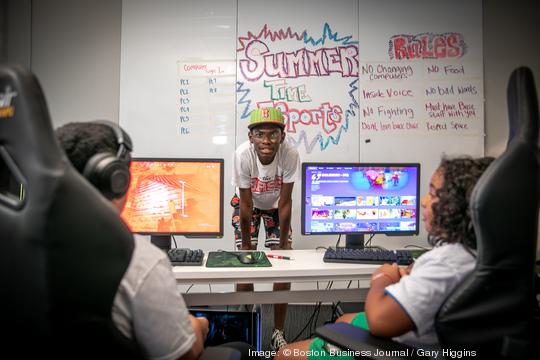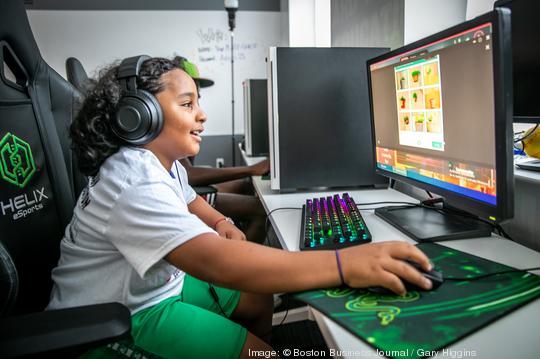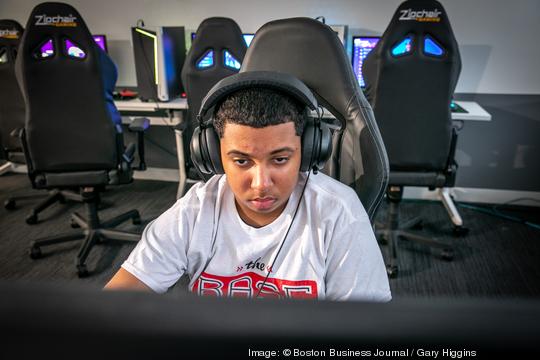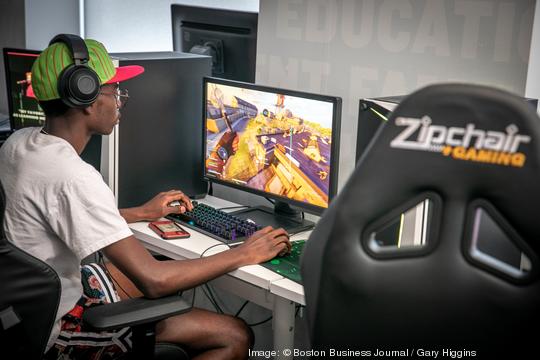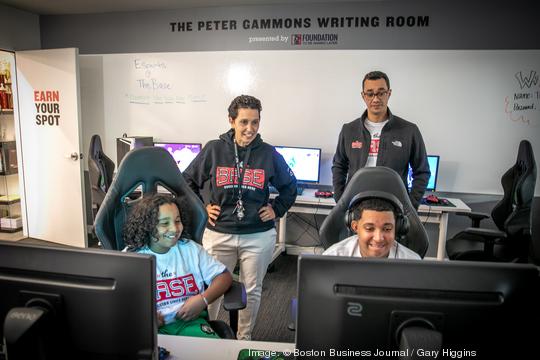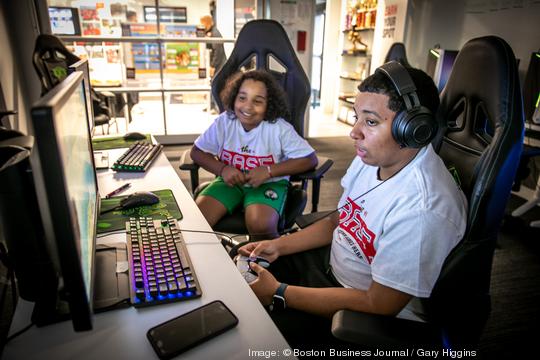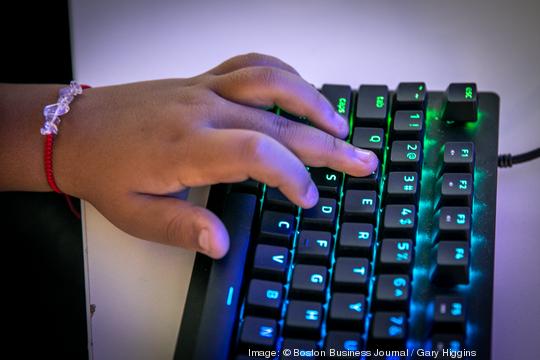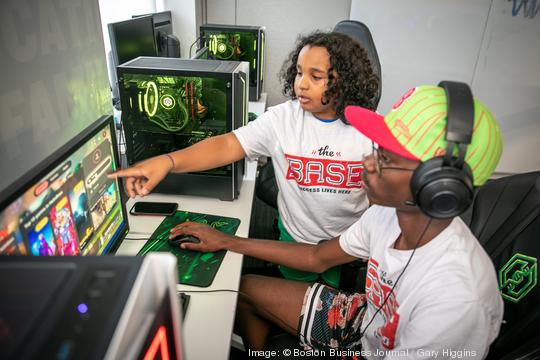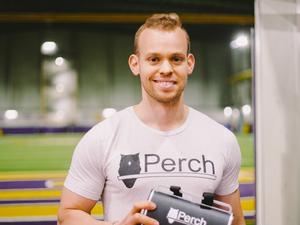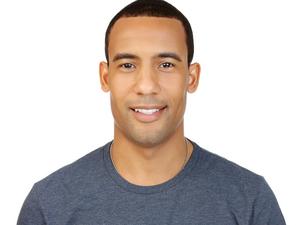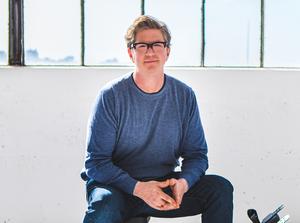Most of the square footage inside The Base — a Roxbury nonprofit known for its baseball, basketball and softball programs — is green turf and black netting illuminated by bright lights.
But tucked into a room near the building’s entrance is a room left purposefully dark. The only light comes from the computer screens that display scenes from games like Fortnite, and gaming towers that shoot out neon lights. It's there that Jael De Leon, 12, was sitting in front of a gaming setup on a recent afternoon.
“What I really want to do right now is create a YouTube account and just post content of me, little clips of me playing and stuff. Just maybe get some money off of it,” De Leon told a reporter as he took a break from gaming.
The Holbrook student has his sights set on being a baseball player in real life. But, like many of the students in The Base’s esports program, he also recognizes that gaming could be a viable way to earn money.
Lori DiPina, site director at The Base, said she used to tell her kids to stop playing video games. Now she’s got a new perspective.
“There’s a huge industry that is open,” DiPina said. “You can get college scholarships and positions within it, not just being a gamer, but developing games or being a referee. And so it was that that really attracted us.”
Gone are the days when parents could tell their kids they're just wasting time playing video games. Esports is becoming a profitable career path, with international, high-level competitions awarding millions in prize money. Boston-area colleges such as Bentley University and Boston University are jumping on this trend and launching esports clubs or intramural teams. Northeastern University is one of a few Massachusetts colleges with a varsity esports team. These players are full-time, scholarship student athletes.
Financial barriers to esports
But for De Leon and other kids, getting experience and breaking into esports professionally isn’t always easy. One of the main barriers is financial. A professional gaming setup, including a PC, keyboard and headset, can cost thousands of dollars.
“(Many of) our kids would have never had access to this,” DiPina said. “We can’t afford it. They can’t afford it.”
The Base primarily serves young people in Roxbury, Mattapan and Dorchester.
Helix eSports, which has a gaming center at Patriot Place in Foxborough, paid for the equipment and two instructors to set up The Base’s program, DiPina said. The nonprofit began its esports program in the summer of 2020 with a two-week bootcamp for 30 kids at Helix.
Two years later, The Base continues to use its esports program to give its students new opportunities. They’re already seeing students develop new skills in gaming and, more importantly, managing their own brands.
Yadier Baez, a 14-year-old from Dorchester, was one of the first participants in The Base’s esports program. He said he still has his website that the program helped him create when he joined. The site contains logos for his gaming clan on products like t-shirts and pants.
Esports tournaments like Phase One are no longer just about playing games, Baez said. “They basically like a culture now,” he explained. Players and organizations need to know how to build a brand beyond just entertaining people with their gaming triumphs.
DiPina said she also sees esports as a way for all kids to experience the benefits of playing team sports.
“There’s some kids who don’t want to be physical, or don’t have the height, size or anything, and this is a great place for them to be part of a team and to experience that,” DiPina said.
She described sitting in on a game day and watching how the “little ones” worked themselves into teams and, as they played, began communicating about their moves in real time.
“I was listening to them like, 'Oh my God, I feel like I’m in a basketball game',” DiPina said.
The nonprofit has about 10 students who regularly come for lessons with the Helix instructors and compete in tournaments at The Base on Friday nights, DiPina said. The Base also lets other teams, including Boston Collegiate Charter School, use the space for training. Demand for the space was slow at first, DiPina said, but now they have five teams there each week.
“We would never say no to anybody because we want anybody to have access to experience that,” DiPina said. “And since we’re the only ones kind of doing it right now, until they catch up with it and have their own systems, we will allow them to come in and use it.”
